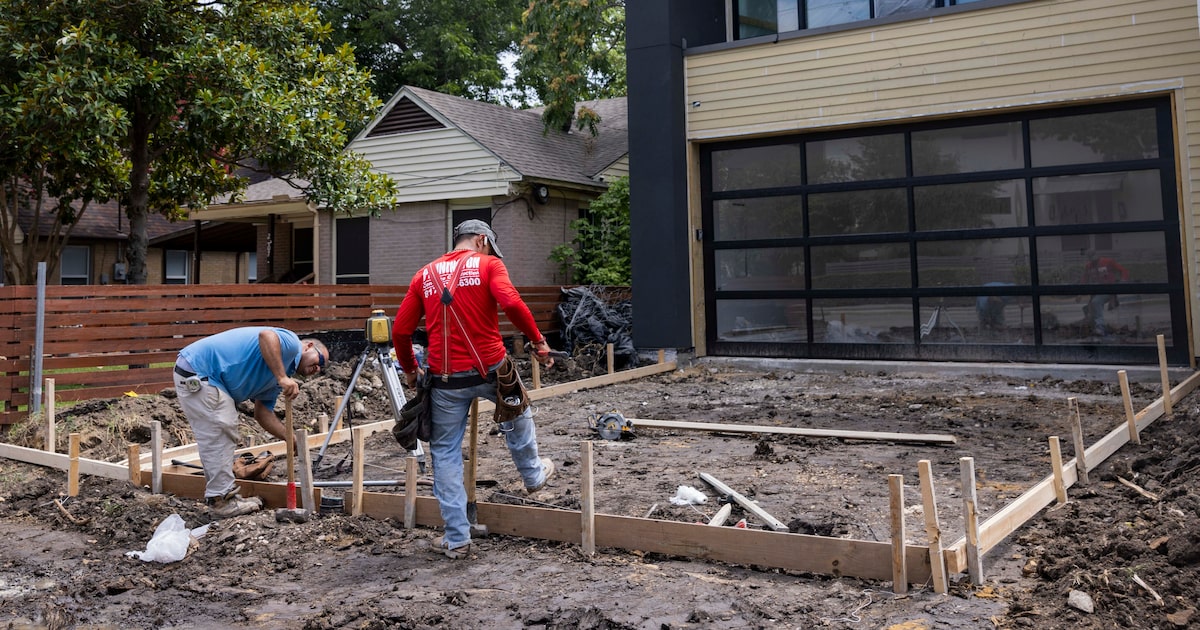On Sep. 1, two new state laws —Senate Bill 840 and Senate Bill 15— take effect. It’s now up to Dallas and nearby cities like Arlington, Garland, Irving and Plano to implement them and weave them into local codes. If done right, these tools can address housing shortages with practical, data-backed and long-overdue solutions.
As housing nonprofit leaders and coalition-builders, we’ve seen how outdated zoning rules block the kinds of homes our city needs — affordable, walkable and attainable for working families. These new laws clear the way.
SB 840: Turning underused commercial property into housing
SB 840 streamlines converting vacant strip malls, offices and aging retail centers into housing — properties already served by roads, utilities and transit. This redevelopment boosts tax revenue by cutting zoning hurdles like excessive parking requirements and lengthy hearings.
Opinion
Dallas-Fort Worth has a 25% office vacancy, a 20-year high, according to a recent report. SB 840 makes it easier to repurpose them rather than demolishing these sites. For example, a vacant big-box store could become 60 to 80 apartments above retail —sustainable, fast and community-enhancing.
Cities can further increase density where SB 840 applies to maximize housing impact. Pew Charitable Trust research shows adding new housing — market-rate included — reduces rent pressures most in low-income neighborhoods by easing competition.
Additionally, codifying SB 2835, a new law regulating stairway requirements, authored by Sen. Nathan Johnson, D-Dallas, would allow “single-stair” small-scale multifamily buildings, expanding housing diversity while fitting within existing neighborhoods.
SB 15: Making room for modest homes
SB 15 stops cities from imposing oversized minimum lot sizes for single-family homes. In Dallas, that means no more blanket 7,500-square-foot minimums, which drive up costs and block affordable builds.
Habitat for Humanity, for instance, can build quality homes on 3,000-to–4,000-square-foot lots — ideal for first-time buyers, downsizing seniors and multigenerational families. Until now, these smaller lots were banned in many areas, pushing homeownership further out of reach.
Homes on sub-4,500-square-foot lots cost roughly one-third less than those on bigger lots. Reducing lot size minimums in urban areas with existing infrastructure, relaxing yard requirements, and replacing rigid dimensional rules with form-based codes can further open the market. Design standards can prioritize shade trees, cooler streets, and less pavement to combat heat.
Why this matters for Dallas
From 2010 to 2020, the Dallas–Fort Worth region added 1.2 million people but about 600,000 housing units. Demand outpaced supply, driving up prices.
Dallas County’s median home price is up nearly 40% in five years, putting homeownership out of reach for essential workers like teachers, nurses and tradespeople. Studies from SMU, University of Texas at Austin and Pew confirm that adding housing slows rent increases, reduces displacement, and that lot size restrictions disproportionately burden Black and Latino families — especially first-time buyers.
This is about more than buildings. It’s about economic opportunity, racial equity, and keeping Dallas a place where people can stay in the communities they grew up in.
Build what we believe in
SB 840 and SB 15 are bipartisan, market-friendly tools that help cities adapt without new taxes or mandates. As Dallas rewrites its development code, these reforms — together — can make smaller lots and redeveloped commercial sites viable for the attainable homes our families need.
Dallas was built by doers. For too long, zoning rules made it easier to build oversized homes on oversized lots than to create diverse, affordable neighborhoods. That changes now.
With smart implementation, these laws can help us write a new chapter — one where our housing matches our Dallas values. Let’s get to work.
Ashley Brundage is chief executive of Dallas Area Habitat for Humanity and chair of the Dallas Housing Coalition. Bryan Tony is executive director of the Dallas Housing Coalition.
